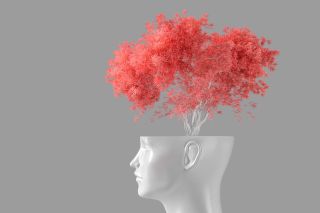Autism
What We Can Learn From Autistic Entrepreneurs
A Personal Perspective: The beauty of adults with autism.
Posted May 23, 2023 Reviewed by Gary Drevitch
Key points
- Autistic entrepreneurs show that people with autism have empathy, creativity, and the ability to thrive.
- People with autism can have profound empathy.
- Many of the reasons people with autism struggle have to do with neurotypical expectations.

I spend a lot of time writing about the difficulties of being an adult and a woman with autism. I write about things that need to be changed in the way we perceive and relate to autism spectrum disorder, how late diagnosis for women can be crippling, how adults with autism struggle, and how mental health issues for this population need to be prioritized. But there is another side to autism that is often forgotten in this narrative.
The truth is that autism is very difficult and that those of us who have it struggle daily. Yet people with autism are some of the most remarkable people I have ever met.
One of my favorite online communities for autism is "Neuroclastic: The Autism Spectrum According to Autistic People." I love their perspectives and the perspectives of the numerous people who write for them. This week, a post appeared that read: “Autistic, ADHD, and otherwise Neurodivergent small business owners, content creators, and freelancers, feel free to advertise your page/site in the comments (official diagnosis not required)."
The comments section exploded. I poured a cup of coffee and read all the comments; what I learned is something I always knew but don’t comment on enough. People with autism and other neurodivergent people are remarkable. Despite the hardships and struggles and alienation, the number of people with autism doing amazing things is awe-inspiring.
There are 649 responses to the post as of this writing, and the number is growing. Among the businesses are numerous private practices—physicians, speech pathologists, writers, artists, psychologists, therapists, podcasters, educators, singers, nurses, photographers, and so many more posting and showcasing their entrepreneurial spirit and creative brilliance.
What has left me most amazed is that many of these businesses are focused on improving quality of life or somehow helping other people with autism, neurodivergence, and other mental health issues. In a world where people with autism are often depicted as lacking empathy, this seems very ironic. Many of the businesses noted on the post show that people with autism are not only creative and brilliant but deeply care about improving the quality of life for other people who are struggling.
Why This Matters
To me, this feed is important in three ways: It is more evidence against the toxic extrapolations from theory of mind as it relates to autism; it shows the neurotypical world that people with autism are remarkable; and it offers hope for future directions for people with autism.
Theory of mind refers to the human ability to make judgments about other people’s inner thoughts based on information they display using body language and other forms of social communication. It has been argued that many people with autism are unable to do this. According to this argument, we can’t imagine a “brain that is not our own, one that does not have the same information, one with different motivations, other feelings, other abilities. They are profoundly unable to ever put themselves into someone else’s shoes and therefore unable to feel empathy." (ABAAnalysisEdu.org) This is a common belief held by multitudes, including some people who work with autistic individuals, often using techniques such as applied behavioral analysis. It is commonly depicted in popular culture.
Yet many among us who spend our lives working with adults with autism know that this is not true. Many with autism do struggle to interpret social communication and understand social cues, but we have profound empathy and desperately want to understand and help. Those feed responses provide evidence of that—hundreds of adults with autism replying to that feed work in fields that are designed to help others. Just because it is harder for us to interpret social cues doesn’t mean we don’t understand when it is explained clearly—without odd social Morse code—or that we can’t have empathy.
In fact, there is a theory proposed by some adults with autism that we have too much empathy. We have so much empathy that when what we feel from a person doesn't line up with what they're saying, we become confused and it appears we don’t understand. Often, what we don’t understand is other people's attempts to obfuscate their real emotions and display inconsistencies for social acceptability (Silberman, 2015). In online communities, many autistic adults describe themselves as hyperempathetic.
The other thing the feed confirmed is that people with autism are remarkable. According to Meilleur et al. (2015), 60 percent of people with autism have special isolated skills. These special abilities are predictive of our ability to function in a neurotypical society, but they aren’t predictive of how much we struggle with autism. Uddin et al. took this research further and broke those exceptional abilities into subgroups. The groups they broke people into included those with higher cognitive functioning, those with isolated special skills, and those they refer to as "twice exceptional," who have both attributes. Research confirms that people with autism are remarkable.
My hope is that this shows us that people with autism have empathy, skills, and intelligence—and when we're in charge of the directions of our own careers, we can thrive as much as any neurotypical in the workforce. Many of the problems in maintaining employment have to do with neurotypical expectations autistic adults are unable to meet. But when we design our own careers and lean into our strengths, we can do things that will put many neurotypicals to shame.
References
AppliedBehaviorAnalysisEdu.org. (2023) What is Theory of Mind and How Does it Relate to Autism. Wiley Universiy services.
Meilleur, A.-A. S., Jelenic, P., & Mottron, L. (2015). Prevalence of clinically and empirically defined talents and strengths in autism. Journal of Autism and Developmental Disorders, 45(5), 1354–1367. https://doi.org/10.1007/s10803-014- 2296-2,
Neuroclastic.com
Uddin, Lucina (2022). Exceptional Abilities in Autism : Theories and Open Questions. Current Directions in Psychological Science. Vol 31(6) 509-517
Siberman, Steve. (2015). Neurotribes: The Legacy of Autism and the Future of Neurodiversity. Penguin Random House.




